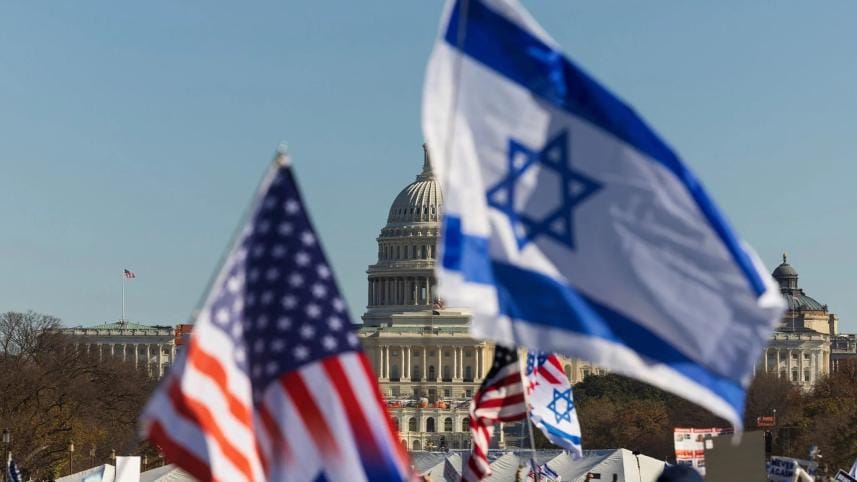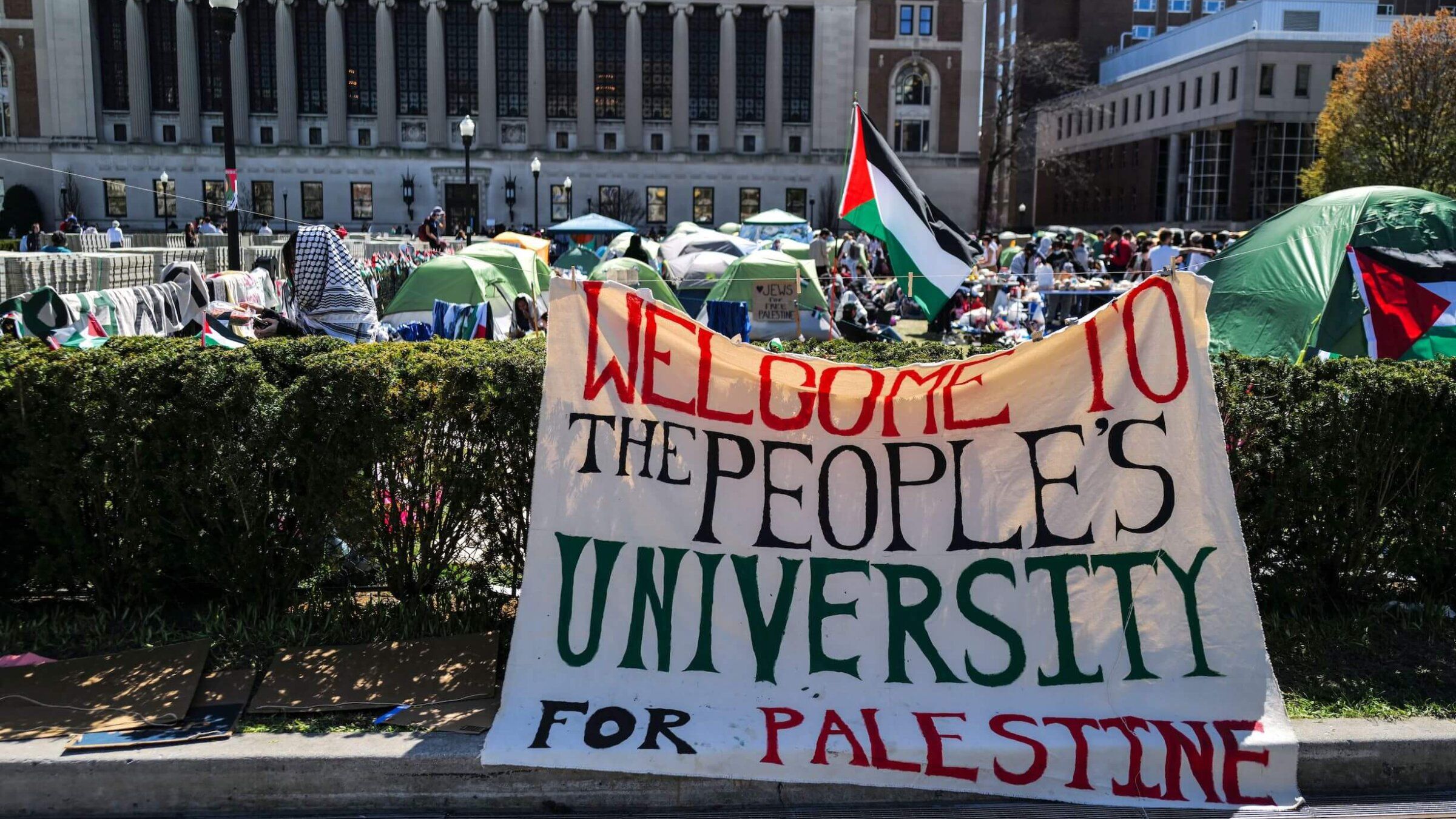Column by Mahfuz Anam: End of academic freedom on US campuses?

Why does the passage of the Antisemitism Awareness Act by the United States House of Representatives on May 1 (it will become a law after Senate votes) worry a newspaper editor in faraway Bangladesh? Simply because the so-called Awareness Act will curb freedom of expression and media guaranteed by the First Amendment to the US Constitution. It is a fact that nothing comparable exists in the world that guarantees these freedoms as resolutely and robustly as the First Amendment does, and any erosion of its impact worries journalists like myself everywhere around the world.
I have often wondered as to the foresight of the authors of that amendment as early as in 1791. Whatever the US did since then—enact hundreds of laws and treaties, conduct wars and military interventions, and all the coup d'états it engineered or supported—it did not touch the First Amendment. In fact, it was the US's biggest attraction, intellectual freedom—something it never tires of flouting. Economic opportunities were obviously a significant factor, but "freedom" was an incomparable allure, especially for the academically minded, to immigrate to the US. Now that sacrosanct piece of legislature is under threat only to protect Israel from legitimate criticism.
As a lifelong journalist, nothing is as endearing to me as the Magna Carta, with which modern day rights began, and the First Amendment, where freedoms of religion, speech and the press got their most robust recognition. The First Amendment states, "Congress shall make no law respecting an establishment of religion, or prohibiting the free exercise thereof; or abridging the freedom of speech, or of the press; or the right of the people peaceably to assemble and to petition the Government for a redress of grievances." The world changed, but the Americans hung on to it, though losing a significant amount of their credibility with the WMD lies.
But the passage of the Antisemitism Awareness Act is the most direct attack on the principles and values of the First Amendment, and it makes us journalists—however far we live—nervous and worried, simply because what will happen in the US could be used to curtail freedoms in other countries. The danger to freedom of speech, freedom of media, and freedom of the academic world is at our doorstep, and it is being midwifed by US lawmakers.
We all knew about Israel's hold on US politics; the American Israel Public Affairs Committee (AIPAC) is heavily involved in funding election campaigns of candidates, especially newcomers. But what we did not know of is its hold on the US academia. Such an unprecedented crackdown—after the anti-war protests more than half a century ago—on faculty members and students, including the removal of presidents of Ivy League universities like Harvard and the University of Pennsylvania, has shaken the academics and the students to the core. The arrest of protesting students, commendably peaceful in their demonstrations, and expulsion of hundreds of them have spotlighted a new and extremely revealing aspect of the US universities: freedom of speech and assembly must end where Israeli interests begin.
Why is the Antisemitism Awareness Act, passed by a vote of 320 to 91 in the House of Representatives, such a threat to freedom of expression and media? Because it expands the definition of antisemitism to include "targeting of the state of Israel, conceived as a Jewish collectivity." This definition equates the state with a religious community, namely the Jews. A state is a political entity, a human construct and subject to all the frailties of human weaknesses. But religion, to its followers, is divinely ordained and guided. The basis of the state is political. The basis of religion is moral. The former strives to gain and retain power through the political process, while the latter demands authority and obedience through faith and moral values. If a state is given the sanctity and obedience of "faith," then it is a return to the theocracies of the Middle Ages. Nothing about the state can be questioned.
To delve further, a state—in this case, the "Jewish collectivity"—is run by governments that are elected through a political process involving wheeling and dealing, occasionally of the worst kind. Governments make policies that impact the lives of citizens. Must they not be scrutinised and criticised when needed? How can criticism of Benjamin Netanyahu and his extreme right-wing government—which has launched a policy of depopulating the Gaza Strip and taking over Palestinian land in the West Bank, and commands very low public support within Israel—be "anti-Jewish collectivity" and, as such, antisemitic?
The protests in the US campuses appear to uphold values that we all aspire to adhere to. To attack them, discredit them as being antisemitic, and punish them with expulsion and imprisonment provide irrefutable proof that like US politics, US academia is now under Israel's dominance.
The ongoing student protests in the US and other parts of the world are not against Israel. They are against the Israeli government's policy against the Palestinians. Again, these protests did not burst into this massive scale just like that. They are against the killings of nearly 35,000 unarmed Palestinians since October 7, 2023 (till May 9, 2024), of whom at least 13,000 are children. There are daily bombings on Gaza, and each day head counts come out in the press as if these lives are nothing but numbers. Recently, the UN Mine Action Service (UNMAS) estimated that there were 37 million tonnes of debris in Gaza, which will take 14 years to clear as the Israeli army has reduced much of the narrow coastal territory of 2.3 million people into a wasteland.
So, are the students in the US and the rest of the world indulging in antisemitism when they are protesting these globally recognised atrocities—acts that are contrary to all international laws and norms and against fundamental human values?
There is another point to be made here. Did the university authorities need to call the state police to handle the protesters who were mostly peaceful? Generally, most, if not all, US universities have their own campus police, who are trained to handle students and the faculty if the need should arise. But calling for the regular police, whose mindset and training are always to use force—most often excessive—to contain any situation, and who are mostly dealing with criminals, was to sow fear and curb a protest that, to repeat, the First Amendment guarantees. Photographs and videos showing the way students were brutalised and even faculty members attacked proved the ferocity with which the students' protests were met. It seemed as if the students needed to not only be taught a lesson, but be brutalised to a level that they would never think of protesting against Israel again.
To a lifelong cheerleader of the First Amendment, the students' protests appear to be salvaging the somewhat dwindling credibility of the Western powers as to their commitment to the Universal Rights, which they are constantly preaching to the rest of the world. The protests in the US campuses appear to uphold values that we all aspire to adhere to. To attack them, discredit them as being antisemitic, and punish them with expulsion and imprisonment provide irrefutable proof that like US politics, US academia is now under Israel's dominance.
Mahfuz Anam is the editor and publisher of The Daily Star.
Follow The Daily Star Opinion on Facebook for the latest opinions, commentaries and analyses by experts and professionals. To contribute your article or letter to The Daily Star Opinion, see our guidelines for submission.




 For all latest news, follow The Daily Star's Google News channel.
For all latest news, follow The Daily Star's Google News channel. 


Comments